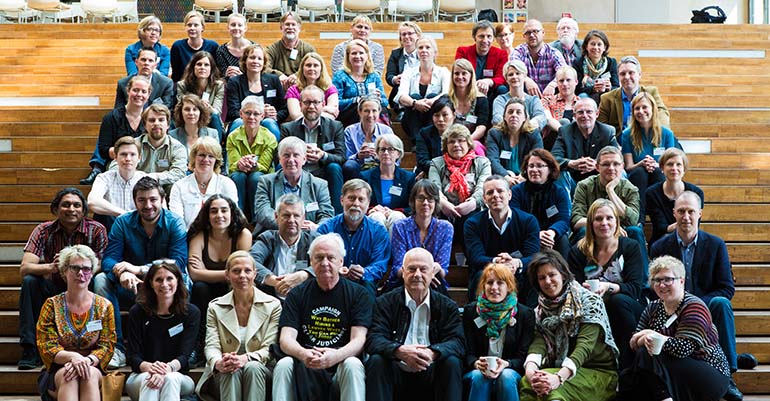
Staffing the Project
What?
To produce knowledge in a project, you need a project manager and a working group. The centre's ambition is to have shared management, with one practitioner and one researcher managing every project. There are multiple reasons why:
- Shared management influences the design of the project and increases the likelihood that both scientific and practical perspectives on the problem area are perceived as valid.
- Shared management is a matter of quality; the likelihood that the purpose of the project needs to be reformulated is reduced if both scientific and practical perspectives are included right from the start.
- Shared management enhances the preconditions for ensuring that the questions posed in the project, and thus also the results generated, will have relevance for both science and practice.
How?
I. Shared management
Identify and offer relevant people to become project managers. It does not have to be pure researchers or practitioners but can be people who feel at home in both worlds.
II. Working group
Gather 5-8 people, researchers and practitioners with different backgrounds that respresents a wide range of prespectives:
- Valuable expert knowledge
- Local knowledge
- Wide networks
- Experience from interdisciplinary work
Look out for! - Time management
Participants in the pilot projects put between 5 and 10% of their time in the projects. It was not always enough to contribute to the projects in a meaningful way in all the phases of the project. This is important to bear in mind when planning a project. Perhaps it is better to contribute more intensively during a specific phase of the project, rather than extensively during the whole project?
Look out for! - Support to participate
It is important that those who participate in a working group are supported from their regular workplaces. If not there is a risk that the workload and the stress increases and the possibility to contribute in a meaningful way is reduced.
"There's no system! In public organisations we have a system for communicating a question. We can turn to administrators or managers with the request to appoint someone, if we want to take the formal approach. But this structure doesn't exist [in the university world]. Every researcher is unique."
"... for an employee in a public organisation, transparency consists of the possibility of influencing, connecting with and getting support in your organisation. There's a feeling of security in your role; you know why
you're there and you're doing it during your working hours. Many researchers, on the other hand, want to see objective criteria for who is on board as an expert and/or project manager, and want to know from the start what the purpose of the project is."
